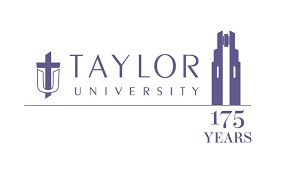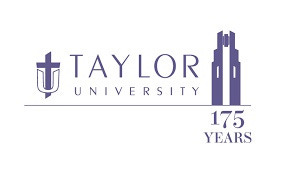This is not the newsletter I was planning to write today. I’ve been working up my courage to finally address the anti-transgender rhetoric, legislation, and paranoia that has been dominating our political life in recent years. It’s still coming so watch the next couple of newsletters.1
However, today Bob Smietana of Religion News Service wrote an excellent story about the Taylor University decision to non-renew (different from firing) a long-term English professor allegedly because her composition course used racial inequality as its primary through-line.
I had heard through my Christian Higher Ed grapevine that something was about to drop. Bob called me last week to have a broad background conversation. The specifics of the story, as Jemar Tisby wrote on Monday, involve professor Julie Moore. Her syllabus had students read a variety of solid resources on race in America. She thought this was particularly appropriate given Indiana’s history as a KKK state.2
Preliminary reporting suggests that one of the administrative concerns was the her syllabus included a quote from Jemar. Since he was the focus of last year’s blowup at Grove City College (that I wrote about here), I guess the administration felt the need to distance themselves from a syllabus quote (while leaving Ta-nehisi Coates alone).
Anyway, when Bob shared his Taylor story on Twitter today, he used a quote from me:
“They are playing a game of musical chairs,” said @JohnWHawthorne, who studies Christian colleges. “They think the only way to survive as a Christian school is to be politically conservative.”
He includes some other things I said as well. So, borrowing a phrase from congressional hearings, I’m taking this opportunity to “revise and extend my remarks”.
I had talked about why courses like Julie Moore’s (as well as those of Sam Joekel at Palm Beach Atlantic, also fired in March) are important. As Bob recounts:
Many of those colleges were predominantly white for most of their history. As they’ve worked to recruit more ethnically diverse student populations, administrations have also created multicultural programs to serve those students. That’s led to a pushback from conservative students and donors — especially due to the national controversy over critical race theory, an academic approach to understanding systemic racism.
Back in my first teaching institution, where I served from 1981 to 1990, the academic vice president told me how he was interested in seeing the institution become more diverse.3 This was largely due to a coming demographic decline in white young people so enrolling and retaining students of color would help offset that. As some excellent work from Christena Cleveland showed a number of years ago, just having a few more students of color on campus didn't change the culture to one of more openness to diversity.
To actually change the culture required some additional steps. So we saw the birth of intercultural centers and Black History month celebrations. We hired Diversity officers and built retention-specific programs to support the students of color and expanded athletic programs. And we tried to introduce a predominantly white student body to what it meant to be a student of color.
And now, as I told Bob, this is seen as the source of “wokeness” and “indoctrination”. It must be eradicated from our schools. Who cares that retention rates of students of color will plummet?
My academic vice president was, of course, absolutely right about that demographic shift. Moreover, today’s students — regardless of color — have a heightened sense of racial issues in society. Sure some will complain — they also complain about math courses and history courses and anything else, because that’s what students do. What’s different here is the political pushback demanding that nothing that makes students feel bad should be included in coursework.4
When administrators act to purge faculty members who teach material that makes students and parents uncomfortable, they do damage to the mission of the institution. As I write in my book5, the focal point of the Christian University mission should be on the students who are preparing for a future very different from that experienced by trustees, administrators, or even most faculty. Dealing with race must be part of that.
During my years as a senior academic administrator in Christian Universities, complaints about a faculty member’s class would come to me (sometimes via a call to the president). In nearly every case, I made the same response. The student should talk to the faculty member to better understand what was said and why. They shouldn’t fear retribution from the faculty member because that was a whole new level of concern that would find that faculty member in my office. But overall, the purpose of a university was to expose students to difficult ideas in the midst of a supportive community with faculty who cared about their well-being.
I even tried to get one of my presidents to let me put up a landing page that explained all that to the upset parents. My thought was I could just point them to the educational philosophy page and then deal with any questions that still remain. (Surprise, the president didn’t go for it!)6
But administrators don’t seem to be up to the challenge of explaining these things. Jemar Tisby wrote an update yesterday on the situation and included a letter Taylor president Michael Lindsay released a bare-bones statement about Moore’s non-renewal. As I commented on his SubStack, one paragraph of the letter stood out to me:
We recognize, though, that there have been questions raised for some about the University’s commitment to intercultural relations. Let me assure you that we remain fully dedicated to embracing and celebrating diversity as an intentional community striving to live out the Gospel of Jesus Christ, which transcends all ethnic, cultural, socio-economic, and national divisions.
Look closely at these sentences and you will see that RACE does not get mentioned at all!7
Sure, we are committed to intercultural relations, celebrate diversity and want to transcend all (or most) divisions. And, of course, the letter ends with the obligatory scripture text.
There’s one other thing that many of these faculty firings (or non-renewals) have in common. When pushed by students or alumni, the administration shifts swiftly to HR-speak. “We don’t discuss personnel issues”, “This action wasn’t about academic content but about insubordination”, and of course, “These are tough financial times and we have to make cuts for our long-term stability”.
That last point was the basis of my “musical chairs” reference in Bob’s story.8 Schools are tempted to purge what they see as troubling faculty (using the finances as an excuse) to demonstrate to a conservative constituency that our school, too, can be as conservative as those others.
But this doesn’t work because the already-conservative schools (we could all name them) are striving to become even more conservative than they already were. So it’s a race to the bottom (or extreme right) at precisely the time when GenZ wants nothing to do with that kind of stuff. There simply aren’t enough white, conservative evangelicals young people looking for someone to validate their priors out there to support this competition.
That doesn’t mean that Christian Universities will close at an increasing pace.9 It means something worse
It means that to survive they will become mediocre institutions who have gutted precisely those areas that could help students engage the world. They will settle for being generic vocationally-focused institutions with some Bible requirements and chapel a few times a week.
My fear is not that they’ll close but that they will survive for decades in this middle-ground of supposedly educating students without seriously challenging them.
I know for sure that it will feature Bud Light and Love Boat. Stay tuned.
I have Timothy Egan’s new book, A Fever in the Heartland, on my to-be-read list.
He was very excited when we hired our second faculty member of color — he told me that “two wasn’t tokenism”. I kindly responded “actually, as young as you’re counting…”
Which makes it really hard to be a liberal arts institution.
It’s tentatively titled “The Fearless Christian University”. I’ve drafted three chapters so far and sent a proposal off to a publisher yesterday. If you want to know more (or have a podcast) hit me up!
As I write this, I realize that my current book project IS that philosophy page I didn’t get to write.
Here’s another shout out to Isaac Sharp’s The Other Evangelicals!
I don’t remember that exact phrasing but I like it.
My sympathies to those who have had to face that or will in the near future.





Keen insight!
Sadly my brother, although our CCCU schools acknowledge that the traditional demographic of potential students is declining.......the Churches and "the money" want a more conservative model, socially and theologically. Get rid of DEI, get rid of a 'Big Tent' evangelicalism, get rid of any kind of support for LGBT et al. (Never mind that the suicide rate for this group is lower in CCCU schools than the norm in other schools.) Afterall, a Pell Grant student (color) cant afford to stay at our schools!
Christian colleges continue to talk a good talk on diversity and reconciliation. But exigencies call for a myopic leadership to rule the day! Those who can afford our CCCU schools, donors, the alumni, the Home-School parent, all want a more conservative school for the here and now!
Our Christian colleges dont seem to care when a sister school closes (Trinity, Kings College, Nyak ...or whatever their name is). Our Schools see it as an opportunity and Trustees see it as a badge of honor that it is 'not us.'
And with the apparent trend that a new President's business background and political philosophy trump a Theological PhD, a Christian Higher Ed background, or even an advanced degree at all......the trend will both continue and accelerate.
Missional concerns are out the window! 'Black and Red' in the books is now the name of the game!
It all saddens me!
My $0.02
I see nothing erronous in discussing multiple viewpoints of the political consciousness, so long as the discourse is civil and is consistent with the messages in the Bible. The hysteria regarding social consciousness the perversion of the concept of social justice, the lack of sanity in identity politics, and the support for things that are Biblically contravened are things that could be discussed while composing strategies to transact this set of cultural Satanic infestation. Loving the sinner and hating the sin is a challenge for many including myself. Respectfully, John Derek Ginsberg, BA Political Science 1989, Bethel University, Arden Hills Minnesota.